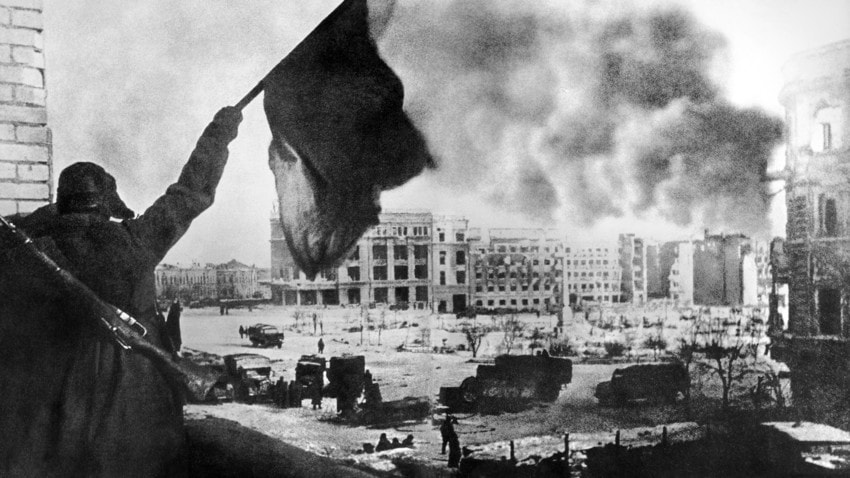|
The Battle of Stalingrad 1942-1943, one of the most pivotal confrontations of World War II, stands as a stark example of military overreach, tactical miscalculation, and the resilience of Soviet forces. The German defeat in this brutal battle can be attributed to several critical factors that, combined, sealed the fate of the Axis forces on the Eastern Front. One of the fundamental reasons for the German defeat was Adolf Hitler's strategic overreach. Hitler's initial plan, Operation Barbarossa, was based on a quick defeat of the Soviet Union. However, as the war dragged on, the Germans were unprepared for a prolonged conflict. Hitler's obsession with capturing Stalingrad, a city of symbolic and strategic importance, led to an underestimation of Soviet resolve and resources. His directive, as quoted in a Führer Directive, was clear: "The city of Stalingrad must be taken." This obsession proved to be a critical blunder. Moreover, the Wehrmacht faced severe logistical challenges. The extended supply lines from Germany to Stalingrad were constantly harassed by Soviet partisans, significantly reducing the flow of supplies, reinforcements, and ammunition to the German 6th Army. Moreover, the harsh Russian winter of 1942-1943 added to these woes. German soldiers, ill-equipped for winter warfare, suffered immensely in the freezing conditions, which severely impacted their combat effectiveness. On the other side, the Soviet defense of Stalingrad, led by General Vasily Chuikov, was marked by extraordinary resilience and resourcefulness. The Soviets adopted a strategy of "hugging" the enemy, engaging in close-quarter combat to negate the Germans' advantage in heavy artillery and air support. Chuikov famously stated, "We will defend the city or die in the attempt." The tenacity of the Soviet soldiers, coupled with effective use of their limited resources, played a crucial role in their eventual victory. German operational failures also contributed significantly to their defeat. The 6th Army, under General Friedrich Paulus, became entrenched in brutal urban warfare, for which they were not trained or prepared. The rigid tactics employed by the German commanders failed to adapt to the changing nature of combat in Stalingrad's ravaged landscape. The turning point in the battle came with the Soviet counteroffensive, Operation Uranus, which was launched in November 1942. This operation successfully encircled the German 6th Army, trapping about 300,000 Axis soldiers in Stalingrad. The encirclement was a devastating blow to the Germans, cutting off their supply lines and leaving them isolated. Despite the dire situation, Hitler refused to allow a strategic withdrawal. His order, relayed through the High Command, was unequivocal: "The 6th Army will hold their positions to the last man and the last round." This stubbornness to retreat further doomed the encircled forces. Ultimately, the German defeat at Stalingrad was the result of a combination of strategic overreach by Hitler, logistical inadequacies, harsh winter conditions, formidable Soviet resistance and strategy, operational failures on the part of the German Army, and the successful Soviet encirclement. This defeat marked a significant turning point in World War II, heralding the decline of German military fortunes on the Eastern Front. Written by Versus History Guest Contributor Ayesha Gill.
0 Comments
Leave a Reply. |
Categories
All
Archives
April 2024
|

 RSS Feed
RSS Feed